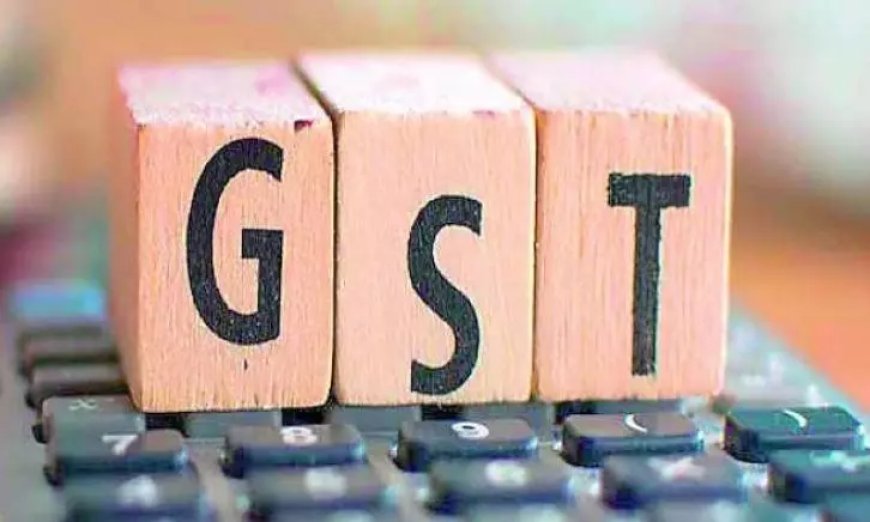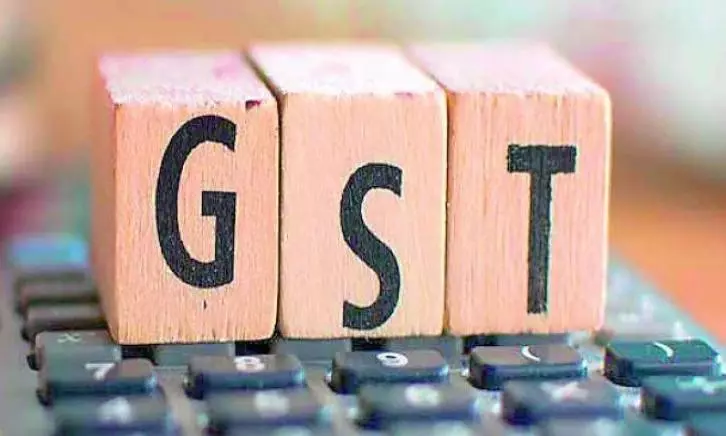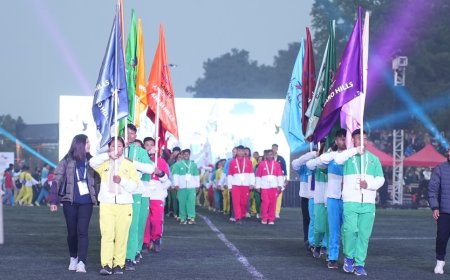GST Council to Revise Rates on Key Items
New Delhi: As the fifty-fifth goods and services tax (GST) council meeting is all set to take place in Jaisalmer on Saturday, the meeting chaired by union finance minister Nirmala Sitharaman is expected to take a host of decision, including insurance premiums, food delivery, packaged water as well as lowering the GST burden on people-centric items among others. Besides, the GST Council may hike high-end consumer items such as watches, shoes and apparels and also consider a separate 35 per cent tax slab for sin goods as well. The Council, headed by Sitharaman and comprising state counterparts may discuss rate rejig in about 148 items, including the issues like bringing aviation turbine fuel (ATF), a major component for airline industry’s operation cost, in the GST fold. Also, the GST rate is also proposed to be cut on food delivery platforms like Swiggy and Zomato, to 5 per cent without input tax credit, from the current 18 per cent (with ITC), according to the sources. “However, the fitment panel, comprising tax officers from the Centre and states, is likely to have proposed a rate hike to 18 per cent on sale of used electric vehicles (Evs) as well as small petrol and diesel vehicles to 18 per cent from the current 12 per cent. This hike would bring used and old smaller cars and EVs at par with old larger vehicles,” the sources said. One of the major items on the agenda of the Council is to decide the GST rate on health and life insurance. Besides, GST on premiums paid by individuals, other than senior citizens, for health insurance with coverage of up to Rs 5 lakh is proposed to be exempted. However, 18 per cent GST will continue on premiums paid for policies with health insurance cover of over Rs 5 lakh. Another major item before the Council is the GST rate rationalisation panel's report, which has suggested rate tweaks in 148 items. Also, the group of ministers (GoM) on GST compensation cess is likely to get a six month extension till June, 2025, to submit their report. The compensation cess regime comes to an end in March, 2026, and the GST Council has set up a panel of ministers, under Union minister of state for finance Pankaj Chaudhary, to decide the future course of the cess. In the GST regime, compensation cess at varied rates is levied on luxury, sin and demerit goods over and above the 28 per cent tax. The proceeds from the cess, which was originally planned for five years after GST roll-out or till June 2022, was used to compensate states for revenue loss incurred by them post the introduction of GST. A GoM set up by the Council under Bihar Deputy Chief Minister Samrat Chaudhary, in its meeting in November had agreed on exempting insurance premiums paid for term life insurance policies from GST. Also premium paid by senior citizens towards health insurance cover has been proposed to be exempted from the tax. The GoM on GST rate rationalisation earlier this month decided to submit before the Council their recommendation to hike tax on sin goods, like aerated beverages, cigarettes, tobacco and related products, to 35 per cent from the present 28 per cent. The four-tier tax slab of 5, 12, 18 and 28 per cent under GST will continue and a new rate of 35 per cent is proposed by the GoM only for sin goods. The GoMs on rate rationalisation under Bihar deputy CM, also decided to propose rationalising tax rates on apparel. As per the decision, ready made garments costing up to Rs 1,500 would attract 5 per cent GST, those between Rs 1,500 to Rs 10,000 would attract 18 per cent.


The Council, headed by Sitharaman and comprising state counterparts may discuss rate rejig in about 148 items, including the issues like bringing aviation turbine fuel (ATF), a major component for airline industry’s operation cost, in the GST fold. Also, the GST rate is also proposed to be cut on food delivery platforms like Swiggy and Zomato, to 5 per cent without input tax credit, from the current 18 per cent (with ITC), according to the sources.
“However, the fitment panel, comprising tax officers from the Centre and states, is likely to have proposed a rate hike to 18 per cent on sale of used electric vehicles (Evs) as well as small petrol and diesel vehicles to 18 per cent from the current 12 per cent. This hike would bring used and old smaller cars and EVs at par with old larger vehicles,” the sources said.
One of the major items on the agenda of the Council is to decide the GST rate on health and life insurance. Besides, GST on premiums paid by individuals, other than senior citizens, for health insurance with coverage of up to Rs 5 lakh is proposed to be exempted. However, 18 per cent GST will continue on premiums paid for policies with health insurance cover of over Rs 5 lakh. Another major item before the Council is the GST rate rationalisation panel's report, which has suggested rate tweaks in 148 items.
Also, the group of ministers (GoM) on GST compensation cess is likely to get a six month extension till June, 2025, to submit their report. The compensation cess regime comes to an end in March, 2026, and the GST Council has set up a panel of ministers, under Union minister of state for finance Pankaj Chaudhary, to decide the future course of the cess.
In the GST regime, compensation cess at varied rates is levied on luxury, sin and demerit goods over and above the 28 per cent tax. The proceeds from the cess, which was originally planned for five years after GST roll-out or till June 2022, was used to compensate states for revenue loss incurred by them post the introduction of GST.
A GoM set up by the Council under Bihar Deputy Chief Minister Samrat Chaudhary, in its meeting in November had agreed on exempting insurance premiums paid for term life insurance policies from GST. Also premium paid by senior citizens towards health insurance cover has been proposed to be exempted from the tax.
The GoM on GST rate rationalisation earlier this month decided to submit before the Council their recommendation to hike tax on sin goods, like aerated beverages, cigarettes, tobacco and related products, to 35 per cent from the present 28 per cent. The four-tier tax slab of 5, 12, 18 and 28 per cent under GST will continue and a new rate of 35 per cent is proposed by the GoM only for sin goods. The GoMs on rate rationalisation under Bihar deputy CM, also decided to propose rationalising tax rates on apparel. As per the decision, ready made garments costing up to Rs 1,500 would attract 5 per cent GST, those between Rs 1,500 to Rs 10,000 would attract 18 per cent.






































